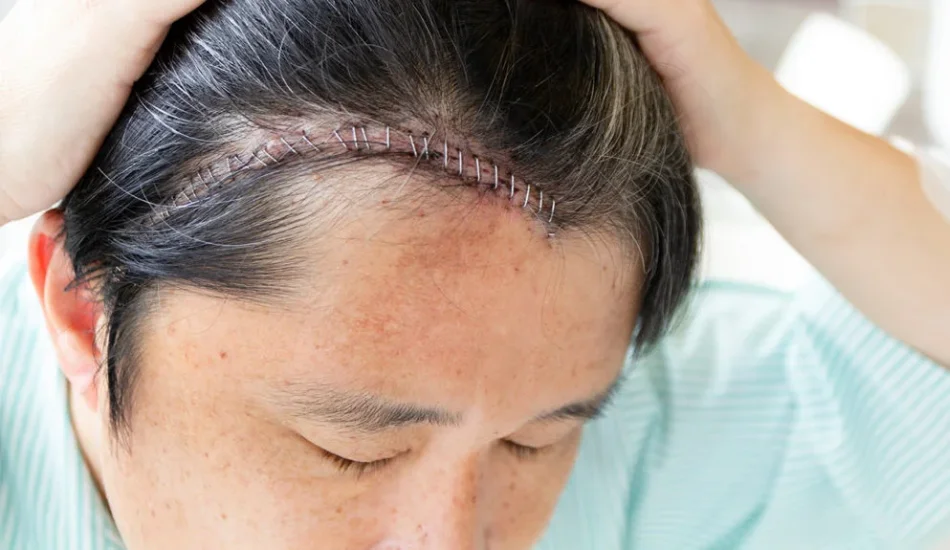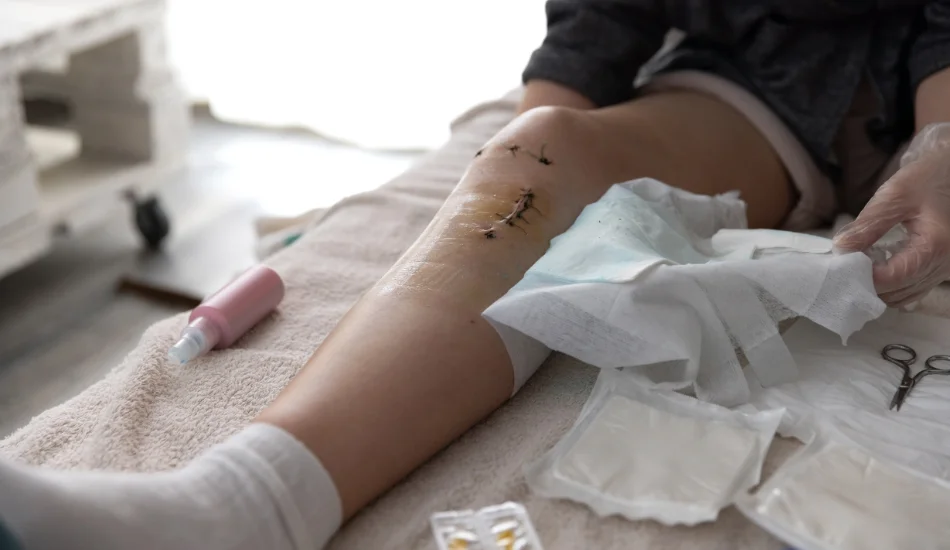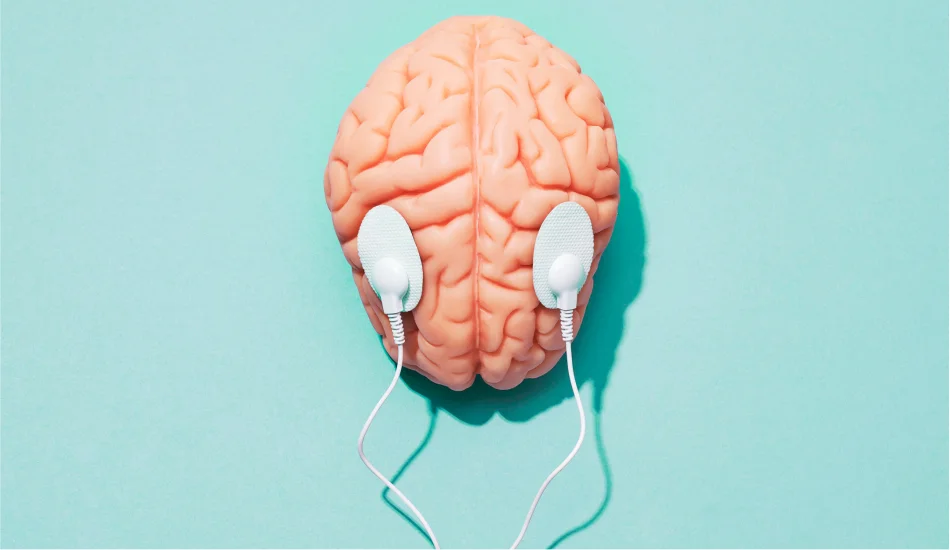
What is a Craniotomy?
A craniotomy is a procedure where a portion of skull referred to as a bone flap is removed for a short time in order to gain access to the brain. The operation is performed by a medical professional who is specialized in the field called neurosurgeon. The principal function of a craniotomy to treat, diagnose, or manage a variety of brain disorders including the presence of brain tumors and aneurysms epilepsy, and brain injuries.
After the surgical procedure is done The bone flap will be fixed and replaced, ensuring the structure that is the structure of skull. In some instances the flap of bone may not be replaced immediately and is known as an acronectomy. The choice of this procedure is contingent on the medical issue and the purpose of the procedure.
When is a Craniotomy Necessary?
A craniotomy procedure is recommended for various ailments that affect the brain. The most popular reasons for undergoing the procedure include:
- Brain Tumor Removal :- Brain tumors are the result of abnormal tumors of cells in the brain. They can be benign (non-cancerous) or malignant (cancerous). A brain tumor craniotomy procedure is used to eliminate the tumor, alleviate tension on the head and stop further damage to the neurological system. This procedure is able to significantly enhance the quality of life of a patient and increase the likelihood of a positive prognosis.
- Treatment of Aneurysms :- An aneurysm is a weak region in the blood vessel that may bulge and rupture, which can lead to a potentially fatal condition called subarachnoid hemorrhage. A craniotomy is a procedure where surgeons are able to access the brain to either clip or fix the aneurysm stopping it from bursting and minimizing the chance of serious complications.
- Management of Epilepsy :- If you have epilepsy that is not responsive to treatment A craniotomy can be done to eliminate or alter the region of the brain that is responsible for the activity of seizures. This type of surgery may aid in reducing the frequency and severity of seizures, dramatically improving the health and quality of life.
- Relief of Intracranial Pressure :- Stroke, brain trauma as well as other illnesses may cause swelling and an increase in pressure in the skull. This is called intracranial pressure. A craniotomy can allow the neurosurgeon to reduce the pressure, thus preventing any further brain damage and possibly saving the life of the patient.
- Accessing Brain Abscesses and Infections :- Infections and brain abscesses require surgical intervention to drain pus and eliminate affected tissues. A craniotomy can access these areas, which allows an effective treatment while decreasing the chance of complications.
- Treatment of Arteriovenous Malformations (AVMs) :- The arteriovenous malformations are a result of abnormal connections between veins and arteries within the brain. They may result in bleeding or other neurological signs. A craniotomy may be utilized to treat or remove these abnormalities, thus reducing the chance of bleeding and other complications.
The Craniotomy Procedure: What to Expect
Knowing the specifics of the procedure for a craniotomy can aid the patients’ families and friends prepare and establish realistic expectations about the procedure and the recovery. Here’s a brief outline of what to anticipate during a craniotomy
- Preoperative Preparation :-Prior to surgery patients go through an extensive evaluation that includes medical history analysis and physical examination as well as imaging studies like MRI as well as CT scans. These assessments assist the neurosurgeon to plan the procedure and decide the best method to follow.Patients are advised to discontinue certain medicines, like blood thinners, in order to decrease the chance of bleeding during the procedure. In addition, patients receive specific instructions for the timing of their fast and hygiene prior to surgery.
- The Surgical Procedure :-During the surgery during the procedure, the patient is put under general anesthesia to provide the patient’s comfort and ease of pain throughout the process. The surgeons closely monitor the patient’s vital indicators and brain activity to ensure stability.The neurosurgeon cuts an incision on the scalp, and then carefully removes a small portion of skull referred to as the bone flap in order to get into the brain. Innovative imaging techniques, like the intraoperative MRI as well as neuronavigation system aid the surgeon in locating the area affected, while guaranteeing precision and reducing the risk.Based on the issue being treated, the neurosurgeon can perform a variety of tasks, including removal of a brain tumor or aneurysm or treating an AVM. After the surgical procedure is finished the bone flap is fixed with screws and titanium plates.
- Postoperative Care :-Following the procedure the patients are taken to a specially-designed recovery facility and are watched by a team of health specialists. The initial phase of recovery could require a stay in the ICU to keep the patient stable and address any immediate postoperative issues. Prevention of infections, pain management as well as monitoring of neurological issues are essential elements of postoperative treatment. Patients are also able to undergo additional imaging tests to evaluate the effectiveness of the procedure, and to monitor for any possible complications.
Recovery After Craniotomy
The process of healing after a craniotomy is dependent on many factors, such as the extent of the procedure as well as the health of the patient and the problem being treated. Here are some of the most important aspects of the process of recovery:
- Hospital Stay :-Patients spend anywhere from a few days or even a week in the hospital after the craniotomy. In this period healthcare professionals examine the patient’s health to manage pain and provide support.
- Rehabilitation :-Rehabilitation is an essential component of recovery, particularly in patients who have had surgery to treat conditions that affect the neurological system. Based on the needs of the patient the rehabilitation process may comprise:
- Physical therapy to enhance strength, mobility and coordination.
- Physical Therapy to help in daily activities and to improve the ability of your motors to perform tasks.
- Speech Therapist to treat problems with speech and language.
- Follow-Up Care :-Regular follow-up appointments with a neurosurgeon are crucial to keep track of the progress of the patient and address any issues. Imaging studies can be performed to evaluate the effectiveness of the procedure and identify any possible issues.
- Recovery Time :-The total recovery time is different for every patient. While some patients can resume routine activities in just a few weeks, others could require a lengthy period of recovery and rehabilitation. It is essential that patients follow the advice of their doctor and to take an active part in their healing process.
Choosing the Right Neurosurgeon
A skilled and knowledgeable neurosurgeon is essential for an effective craniotomy. Patients should take into consideration a number of aspects when selecting a neurosurgeon which include:
- Experience and Expertise :- Search for a neurosurgeon that has vast experience the practice of craniotomy and in managing the problem that is at the time of.
- Credentials and Reputation :- Examine the credentials of a neurosurgeon, their affiliations, as well as patient reviews to learn more about their track record and reputation.
- Communicating and trust :- Select an experienced neurosurgeon who clearly communicates and is attentive to your concerns and establishes a trusting doctor-patient relationship.
For those looking for an expertly trained neurosurgeon who is highly skilled and experienced in Bhayandar, Chirayu Super Speciality Hospital has an expert team committed to providing the highest quality of medical care and achieving the most optimal results in our patients.
Conclusion
A craniotomy is an essential surgical procedure that treats the spectrum of neurological issues, from brain tumors, aneurysms, and many more. Selecting a trusted clinic with experienced neurosurgeons is vital to ensure the most effective outcomes and for ensuring the best recovery.
In Chirayu Super Speciality Hospital, we’re dedicated to providing outstanding care using the latest techniques and assisting our patients at throughout the process. If you or someone you love needs a craniotomy procedure, call us today to inquire about how our team of experts will assist you in your path towards recovery.


